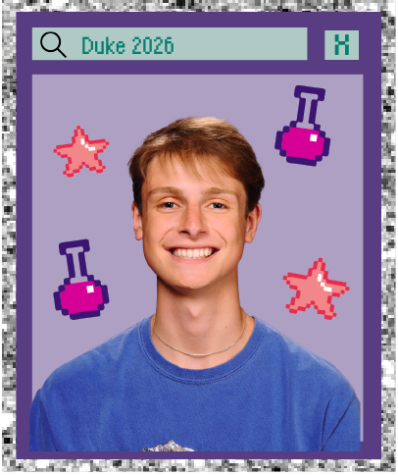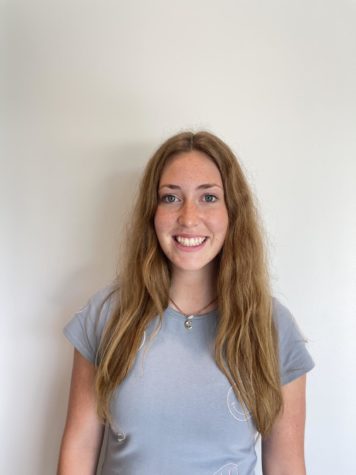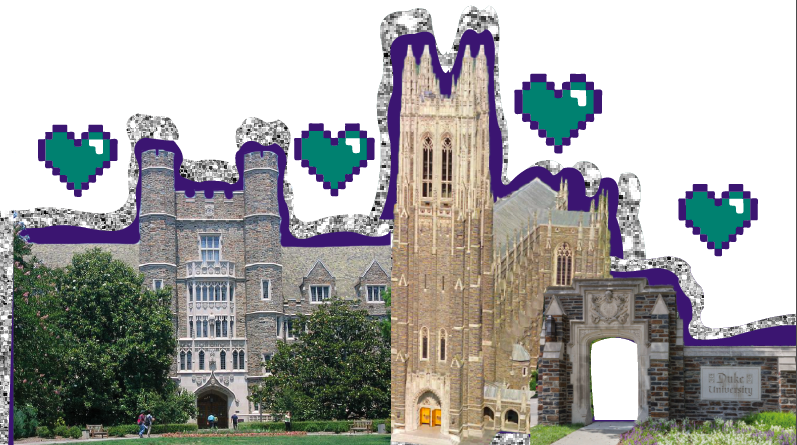Steps to Success
Senior outlines path to college acceptance at selective school
Graphic by Charley Thomas
After his friend, a current college student, got him interested, senior Will Creamer knew he wanted to attend Duke University. However, the journey to his acceptance did not always consist of the copious and often excessive amounts of academic rigor through which many other applicants of selective institutions put themselves.
“Freshman and sophomore year, I focused on trying to develop a good base of friends and trying to get into some extracurriculars that I was interested in,” Creamer said. “I built a foundation with some teachers that I’m really close with and got interested in sports I still do today. I wasn’t super focused on taking a bunch of AP classes — I actually didn’t take any AP classes until junior year.”

Though Creamer had to meet high academic standards to put himself in contention for a spot at Duke, he believes admissions officers look for much more than numbers on a page.
“I think a lot of people give up a social life when they’re shooting to go to a top-10 or top-20 university, but I think that’s the opposite of what a person needs to do,” he said. “These colleges are really looking for students who they think can contribute to their student community. Once you get to a certain test score and GPA, you pass their threshold, and you can be looked at. But if you’re just a school robot or you can’t really show your personality, I think that lowers your chances to get in.”
As a soon-to-be first-generation college student, Creamer didn’t know much about the details of the application process, but starting to research and organize early proved to be a sound investment.
“I took about a year to write my essays because I knew Duke was where I really wanted to go to school,” he said. “It was my number-one, and I knew that these top schools really like to see unique essays that can tell them a story, so I spent nine months chiseling mine and sculpting them to perfection. Being able to get my ideas out onto paper nine months ahead of time really allowed me to get the bad ones out and only submit the good ideas.”
His creative writing topic, Creamer expressed, was likely one of the key factors that led to his success as an applicant.
“I wrote about being a passenger on three different vehicles in my life and how I used ‘riding shotgun’ in order to connect with the people I care about most and advance myself as a person,” he
said. “I talked about all the memories I have ‘riding shotgun’ and the super valuable lessons it taught me.”
In addition to his primary essay, Creamer submitted responses to all three of the optional prompts — one of which was centered around his experience as an LGBTQ+ individual.
“I made it a metaphor and talked about how homophobia was like a monster under my bed for 15 years, and then finally in freshman year, I banished the monster,” he said. “I also talked about how it taught me to lead into every conversation I have with understanding and empathy. It taught me that I want to be an advocate for other people who still have to evict their monsters.”
Along with the basic set of universal qualifications for selective schools, each university looks for specific traits that lend themselves to success at that particular institution.
“Places like Duke are really big into athletics, showing you have a school spirit and showing you really like to belong to a community,” Creamer said. “They also really enjoy students who are able to bring a different perspective, who are from different backgrounds or who have different experiences.”
As he looks forward to beginning his college career this fall with majors or minors in biology and business, Creamer reflects on the long, yet worthwhile steps to admission as a whole.
“There’s a lot of luck involved, and there’s a lot of randomness in it, but I think the process is not coincidental and that people get in where they’re supposed to go,” he said. “You are able to put so much of yourself into your college application so those prestigious universities can really see you as a person.”

Charley Thomas is a senior and serves as Editor-in-Chief of the Tiger Print this year. At BV, she is a member of the Varsity Volleyball Team, Student Council,...




